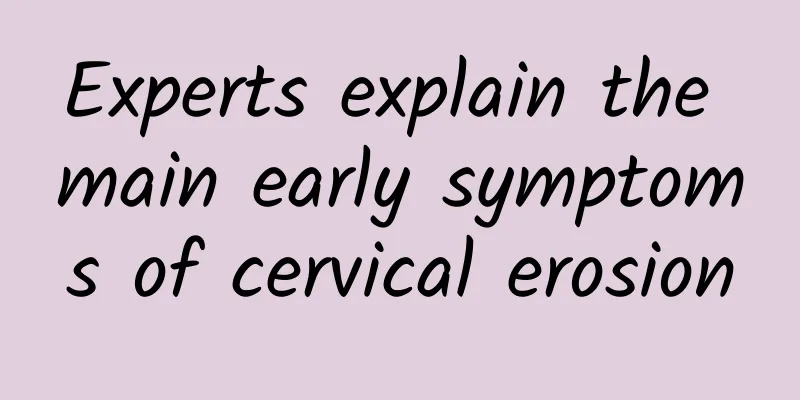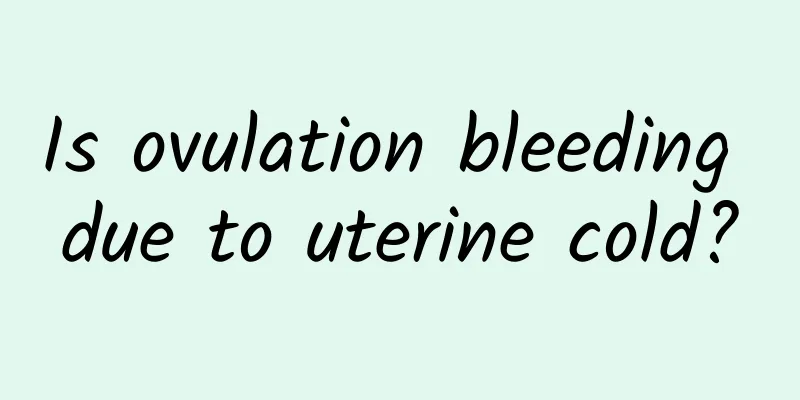Does excessive menstrual blood clots indicate uterine fibroids?

|
Does excessive menstrual blood clots indicate uterine fibroids? Excessive menstrual blood clots may be caused by uterine fibroids, endometritis, and endometrial polyps. 1. Uterine fibroids: It is a benign tumor, and its cause is not yet fully understood. Current studies have shown that it is related to abnormal hormone secretion, genetics and other factors, which can lead to increased menstrual volume, abnormal vaginal bleeding, prolonged menstrual cycles, etc. At the same time, it can also cause uterine fibroids, which then become necrotic and are discharged through menstruation, leading to blood clots. You can follow the doctor's advice and undergo surgical treatment such as myomectomy and hysterectomy. 2. Endometritis: It is mainly caused by endometrial infection with pathogens, such as Neisseria gonorrhoeae, anaerobic bacteria, etc., which may cause abnormal menstrual cycle, increased skin surface temperature, abdominal distension, etc. When the endometrium is inflamed, it will cause the endometrium to fall off and cause menstrual blood clots. It is necessary to take tetracycline tablets, metronidazole tablets, clindamycin hydrochloride capsules and other drugs as prescribed by the doctor. 3. Endometrial polyps: It is a benign disease that may be caused by excessive estrogen secretion or inflammatory stimulation in the body, which will cause damage to the endometrium, increase vaginal discharge and irregular bleeding. At the same time, it will also cause foreign bodies in the uterine cavity, which will then be discharged from the body through the vagina. Blood clots will be found in the menstrual blood. It needs to be treated with hysteroscopic polypectomy or curettage under the guidance of a doctor. In addition to the above diseases, it may also be cervical cancer, etc., which requires medical treatment. |
<<: What are the symptoms of chronic pelvic inflammatory disease
>>: What to do if you have menstrual disorders after miscarriage?
Recommend
Will cervicitis affect fertility? 4 steps to treat and care for cervicitis in women
The uterus is particularly important to women. Du...
Knowing more about the symptoms of ovarian cysts can give patients more confidence
The ovaries are important reproductive organs of ...
How often do menarches occur?
Is menarche common? Generally speaking, the amoun...
What are the common clinical manifestations of endometrial tuberculosis?
Endometrial tuberculosis refers to the appearance...
Does irregular menstruation at 48 need to be regulated?
If the menstruation is irregular but there is no ...
What is the best way to treat pelvic effusion?
Pelvic effusion does not necessarily require surg...
Low-calorie New Year dishes are good for your health! If you have a bad stomach, try "Yam Stewed Sea Bass"
The temperature is relatively low in winter. Peop...
Is hyperprolactinemia dangerous?
What are the hazards of excessive prolactin? The ...
What is the reason for a long menstrual cycle? Is a long menstrual cycle a symptom of uterine fibroids?
Since most uterine fibroids have no symptoms, the...
How to regulate irregular menstruation due to blood deficiency? Daily care methods for irregular menstruation in women
There are many women around me who suffer from in...
How to have an abortion during breastfeeding? What preparations should be made for abortion during breastfeeding?
Generally speaking, there is no normal menstruati...
Are the symptoms of uterine fibroids obvious? Can uterine fibroids cause menstrual abnormalities?
In today's society, there are more and more d...
What are the early symptoms of cervical erosion?
Everyone knows that cervical erosion is a common ...
"Fish" your love has an appointment! Bringing Warmth to Orphanages in Cold Winter
Ignite the spark of life and hope! Behind their s...
Do you know what causes dysmenorrhea?
Do you know the causes of dysmenorrhea? Especiall...









